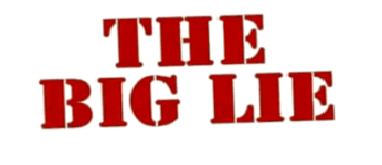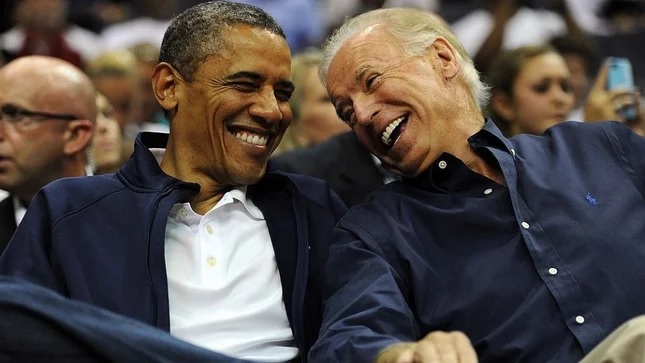[When I wrote the previous post adding Big Lie #10 to this compendium, I decided to read the whole thing again. That occasioned numerous updates (and repaired typos, of course.). I found it worth reading again; heck, I wrote it, and I had forgotten most of it. So I’m re-posting the revised version now…]
Introduction
The “Big Lie” strategy of public opinion manipulation, most infamously championed by Adolf Hitler and his propaganda master Joseph Goebbels, has, in sinister fashion, become a routine and ubiquitous component of the Left’s efforts to remove President Donald J. Trump from office without having to defeat him at the polls, and subsequently after his defeat, to attempt to prevent him from defeating a hopelessly inept failed successor. One of the most publicized Big Lies, that Trump had “colluded” with the Russian government to “steal” the Presidential election from Hillary Clinton was eventually exposed as such by the results of the Mueller investigation, the discrediting of the Steele Dossier, and the revelation that Democrats (like Adam Schiff) and the mainstream news media deliberately misled the public. and Democrats, with blazing speed, replaced it with another Big Lie that there was a “Constitutional crisis.” I could have added that one to the list, I suppose, but the list of Big Lies is dauntingly long already, and this one is really just a hybrid of the Big Lies below.
Becoming addicted to relying on Big Lies as a political strategy is not the sign of ethical political parties, movements, or ideologies. Perhaps there is a useful distinction between Big Lies and “false narratives,” but I can’t define one. Both are intentional falsehoods designed to frame events in a confounding and deceptive manner, so public policy debates either begin with them as assumptions, thus warping the discussion, or they result in permanent bias, distrust and suspicion of the lie/narrative’s target. For simplicity’s sake, because I believe it is fair to do so, and also because “Big Lie” more accurately reflects just how unethical the tactic is, that is the term I will use.
Big Lie #1. “Trump is just a reality TV star.”
This is #1 because it began at the very start of Trump’s candidacy. It’s pure deceit: technically accurate in part but completely misleading. Ronald Reagan was subjected to a similar Big Lie when Democrats strategically tried to denigrate his legitimacy by referring to him as just an actor, conveniently ignoring the fact that he had served as Governor of the largest state in the nation for eight years, and had split his time between acting and politics for many years before that, gradually becoming more involved in politics and public policy. (Reagan once expressed faux puzzlement about the denigration of his acting background, saying that he thought acting was an invaluable skill in politics. He was right, of course.)
In Trump’s case, the disinformation was even more misleading, He was a successful international businessman and entrepreneur in real estate, hotels and casinos, and it was that experience, not his successful, late career foray into “The Apprentice” (as a branding exercise, and a brilliant one), that was the basis of his claim to the Presidency.
The “reality star” smear still appears in attack pieces, even though it makes even less sense for a man who has been President for four years. The tactic is ethically indefensible . It is not only dishonest, intentionally distorting the President’s legitimate executive experience and success, expertise and credentials, it is also an ad hominem attack. Reality TV primarily consists of modern freak shows allowing viewers to look down on assorted lower class drunks, vulgarians, has-been, exhibitionists, idiots and freaks. Class bigotry has always been a core part of the NeverTrump cabal, with elitist snobs like Bill Kristol, Mitt Romney, the Bushes, and George Will revealing that they would rather capitulate to the Leftist ideology they have spent their professional lives opposing (well, not Mitt in all cases) than accept being on the same team as a common vulgarian like Donald Trump. Continue reading









